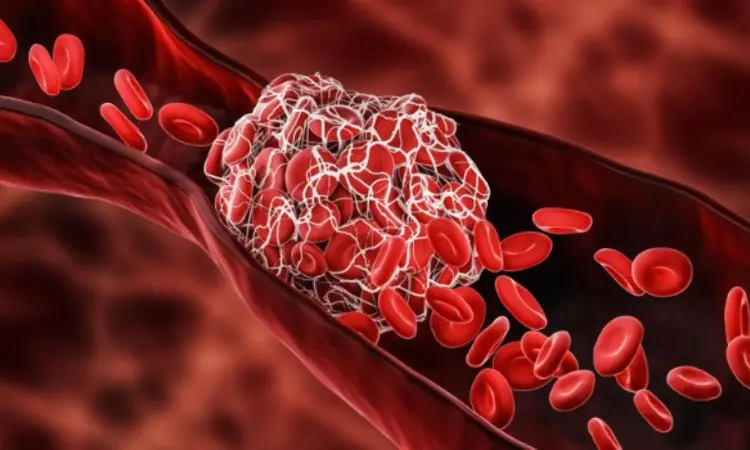- Home
- Medical news & Guidelines
- Anesthesiology
- Cardiology and CTVS
- Critical Care
- Dentistry
- Dermatology
- Diabetes and Endocrinology
- ENT
- Gastroenterology
- Medicine
- Nephrology
- Neurology
- Obstretics-Gynaecology
- Oncology
- Ophthalmology
- Orthopaedics
- Pediatrics-Neonatology
- Psychiatry
- Pulmonology
- Radiology
- Surgery
- Urology
- Laboratory Medicine
- Diet
- Nursing
- Paramedical
- Physiotherapy
- Health news
- Fact Check
- Bone Health Fact Check
- Brain Health Fact Check
- Cancer Related Fact Check
- Child Care Fact Check
- Dental and oral health fact check
- Diabetes and metabolic health fact check
- Diet and Nutrition Fact Check
- Eye and ENT Care Fact Check
- Fitness fact check
- Gut health fact check
- Heart health fact check
- Kidney health fact check
- Medical education fact check
- Men's health fact check
- Respiratory fact check
- Skin and hair care fact check
- Vaccine and Immunization fact check
- Women's health fact check
- AYUSH
- State News
- Andaman and Nicobar Islands
- Andhra Pradesh
- Arunachal Pradesh
- Assam
- Bihar
- Chandigarh
- Chattisgarh
- Dadra and Nagar Haveli
- Daman and Diu
- Delhi
- Goa
- Gujarat
- Haryana
- Himachal Pradesh
- Jammu & Kashmir
- Jharkhand
- Karnataka
- Kerala
- Ladakh
- Lakshadweep
- Madhya Pradesh
- Maharashtra
- Manipur
- Meghalaya
- Mizoram
- Nagaland
- Odisha
- Puducherry
- Punjab
- Rajasthan
- Sikkim
- Tamil Nadu
- Telangana
- Tripura
- Uttar Pradesh
- Uttrakhand
- West Bengal
- Medical Education
- Industry
'Overwhelming' bleeding reduction with abelacimab versus rivaroxaban in AF leads to early halting of trial

USA: Abelacimab, a novel factor XI/XIa inhibitor being studied in the AZALEA-TIMI 71 trial, was shown to lower a composite of major and clinically relevant nonmajor bleeding versus rivaroxaban in atrial fibrillation (AF) patients at a moderate-to-high-risk-of stroke. The results were announced by the drug's manufacturer Anthos Therapeutics.
Abelacimab is a novel, highly selective, fully human monoclonal antibody with dual inhibitory activity against factor XI and its active form, factor XIa.
The AZALEA-TIMI 71 trial stopped early due to an unprecedented bleeding benefit for adults with AF. The company noted that abelacimab is also the first and only factor XI inhibitor to demonstrate an unprecedented reduction in major bleeding compared with a DOAC (direct oral anticoagulant).
"The study was stopped by the data monitoring committee after it met its primary endpoint, a composite of major and clinically relevant nonmajor bleeding, in participants taking abelacimab versus patients taking rivaroxaban (Xarelto, Janssen/Bayer), a factor X inhibitor and a leading standard-of-care DOAC," Anthos stated in a press release.
“The AZALEA-TIMI 71 study is the largest and longest head-to-head study of a factor XI inhibitor to provide definitive evidence of a highly significant reduction in bleeding as compared to the standard-of-care anticoagulant,” Marc S. Sabatine, MD, MPH, the Lewis Dexter, MD, Distinguished Chair in Cardiovascular Medicine, Brigham and Women’s Hospital, professor at Harvard Medical School and chairman of the TIMI Study Group, said in the release.
“With a median of 21 months of follow-up, spanning more than 2,000 patient-years, AZALEA-TIMI 71 represents a landmark study confirming the promise of factor XI inhibition as causing substantially less bleeding than a current standard-of-care.”
The trial enrolled 1,287 patients from 95 centres in Asia, Europe, and North America and had a median of 21 months of follow-up before being stopped. Patients were randomized to receive either 20 mg oral daily rivaroxaban or 150 mg or 90 mg subcutaneous abelacimab every month.
According to Anthos Therapeutics, the full findings of the AZALEA-TIMI 71 will be presented at an upcoming scientific congress.
Just recently, the company announced that abelacimab had received a fast-track designation from the US FDA for the prevention of systemic embolism and stroke in AF patients. The fast-track designation is granted to therapies with the potential to fill the unmet needs of patients with serious medical conditions.
The investigational drug is a highly selective, fully human monoclonal antibody with dual inhibition against factor XI and factor XIa. It is not currently approved for any indication in any country.
Reference:
Verhamme P, et al. N Engl J Med. 2021;doi:10.1056/NEJMoa2105872.
Dr Kamal Kant Kohli-MBBS, DTCD- a chest specialist with more than 30 years of practice and a flair for writing clinical articles, Dr Kamal Kant Kohli joined Medical Dialogues as a Chief Editor of Medical News. Besides writing articles, as an editor, he proofreads and verifies all the medical content published on Medical Dialogues including those coming from journals, studies,medical conferences,guidelines etc. Email: drkohli@medicaldialogues.in. Contact no. 011-43720751


